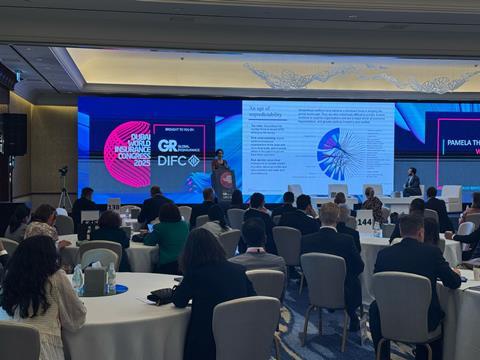Global business leaders are increasingly recognising that today’s environment is not defined by isolated shocks but by a constant churn of overlapping crises.

Political instability, terrorism threats, economic sanctions, and ‘grey zone’ aggression are no longer anomalies; they are the backdrop against which strategic decisions must be made.
Pamela Thomson-Hall, CEO of international and head of risk and broking international at WTW said: “We find ourselves in a tremendous period of uncertainty… It took me four weeks to write this because every time I wrote it, something would change, and I had to start again.”
WTW’s recent survey of emerging risks found that geopolitical risk is now ranked among the top three concerns for CEOs, alongside cyber and artificial intelligence.
Organisations and their risk management heads cited recent elections, government-business misalignment, sanctions regimes, fuel price volatility, and fears over trade routes and supply chains as significant threats to operational stability.
In a world where, as Thomson-Hall noted, “most CEOs see themselves as the chief geopolitical officer”, traditional models of global expansion and supply chain resilience must be fundamentally rethought.
The challenges facing corporations
One of the greatest challenges for organisations is the increasingly blurred line between war and peace. ‘Grey zone’ activities, including cyberattacks, disinformation campaigns, and targeted economic pressure, are becoming normalised.
“You only have to look at what Elon Musk did to the British prime minister over historic legal policies to see how grey zone aggression can be very impactful,” Thomson-Hall said.
Adding to this complexity is the rise of politically motivated violence.
WTW anticipates continued polarisation and protests, especially in emerging markets where financial distress is compounded by rising energy and food prices. Right-wing movements, conspiracy theories, and radicalised lone-wolf actors are also intensifying the threat landscape.
New technologies are exacerbating these risks. “Emerging technologies like low-cost drones and 3D printed weapons continue to present new security threats,” Thomson-Hall warned.
This evolution demands that businesses move beyond siloed approaches to risk management. Integrated strategies that combine political, operational, cyber, and reputational risks are now essential.
Insurance: providing certainty in uncertain times
In this volatile environment, the role of insurance is evolving from simple financial indemnity to a strategic enabler, Thomson-Hall emphasised.
Specialty insurance covers such as political violence and terrorism (PVT) insurance, as well as political risk covers, are helping businesses maintain confidence to invest, trade, and expand.
“Businesses can protect themselves from risks that seem beyond their control, whether it’s a change in government, a terror attack, or civil unrest,” Thomson-Hall explained.
“These products do allow businesses to operate with greater confidence, knowing that they have a safety net when volatility strikes.”
Interestingly, the PVT market is softening despite the broader risk environment. Rates fell between 2.5% and 10% across most categories last year, driven by an influx of new capacity.
Some high-risk areas have seen exceptions, but for most clients, competition is increasing, and insurers are offering greater flexibility — including coverage enhancements previously retrenched during the harder market.
Nonetheless, consistency of capital is critical. “Clients value consistency and continuity,” Thomson-Hall said. “Those who take a longer-term approach will reap rewards over their competition. Otherwise, clients are smart — and they will look for alternative risk transfer solutions if the insurance market isn’t responsive.”
Dubai’s pivotal role
Dubai has emerged as a key hub in this new geopolitical environment, offering stability, connectivity, and an international mindset critical for today’s businesses, she stressed.
“In this ever-changing world, Dubai is a beacon of stability and continuity for the region,” Thomson-Hall said. “It provides a secure environment for our clients and our partners. As an Arabic-speaking international financial services hub, Dubai is uniquely positioned now to facilitate risk transfer against the instability that affects businesses both locally and globally.”
Talent and infrastructure are also part of Dubai’s appeal. With a strong inflow of experienced professionals and strategic investments in financial services, Dubai offers businesses access to global expertise with regional knowledge.
Thomson-Hall cautioned, however, that success would depend on the ability to retain talent through more than just competitive pay: “We do need talent strategies that do more than just pay people to retain them. We need to inspire them and ensure they feel part of a global community.”
The future of political risk management
As the geopolitical environment becomes more volatile, businesses can no longer afford to treat political risk as an externality. It must be baked into core business strategies, supported by data-driven insights, expert guidance, and innovative insurance solutions.
“Risks present opportunities,” Thomson-Hall concluded. “Those who courageously manage risks effectively, maintain a forward-looking approach, and thrive – they are the ones who will succeed in this volatile world.”











